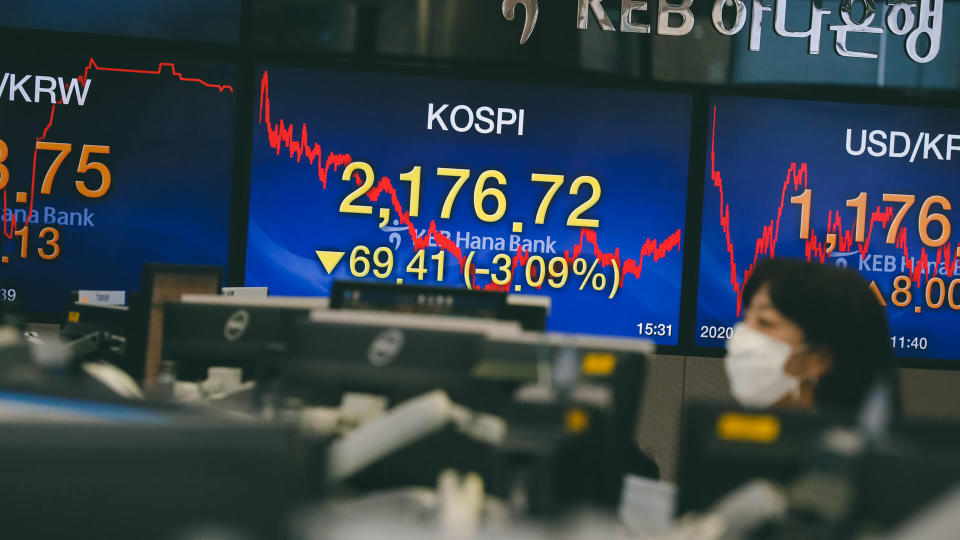9 Outdated Myths About Investing
Stock market investing has become so popular that it’s now easy for even beginning investors to get as much information as they need about specific stocks or the market in general. The downside of all of this information is that it tends to perpetuate a number of investment myths. The bottom line is that it can be relatively easy to be a successful investor if you’re able to cut through all of the noise and find an investment strategy that matches your objectives and your risk tolerance. Here’s a look at some of the most commonly quoted investment axioms that are actually myths.
Your View: Should the COVID-19 Vaccine Be Required? Take Our Poll

You Need a Lot of Money To Invest
In the early days of the stock market, it may have been true that you needed a lot of money to succeed at investing. However, in the 2000s, nothing could be further from the truth. Now, most online brokers require a $0 minimum to open an account and charge $0 commissions for most stock and ETF trades. Additionally, many online brokers also allow customers to buy fractional shares of stock. Add it all up and it means that with just $5 or less you can open an account and buy shares in nearly any stock for $0. Clearly, the days of needing a lot of money to invest are gone forever.
See: Here’s Why Your Stimulus Check Might Still Be Pending

Investing Is Too Expensive
Hand-in-hand with the myth that investing requires a lot of money is the belief that investing is expensive. It’s true that you can certainly find investments that will cost you an arm and a leg. A full-service broker, for example, is liable to charge you hundreds of dollars to trade a few hundred shares of stock, or perhaps a 1-2% annual fee on all of your assets. While some investors do need and prefer the services of a full-time investment professional, if you’re just looking to buy and sell a few shares of stock, you can pay exactly $0 at most of the major online brokerage houses. If you prefer to invest in mutual funds, you can similarly find plenty of no-load funds that charge no commissions. Many exchange-traded funds charge a low 0.03% of annual expenses to own, and some mutual funds and ETFs don’t even charge you annual expenses at all.
Mutual Fund Fees: What You Need To Know Before Investing

You Shouldn't Invest in Stocks After You Retire
Retirement is often mythologized as a time when investors convert all of their aggressive investments into a conservative, income-based portfolio. This myth no doubt originated from the fact that retirees can’t afford to take huge risks with their nest eggs, as they have no regular income to offset any investment losses. However, the truth is that most retirees are looking at 20 or 30 years of retirement, if not longer. Over that long of a time frame, owning some equities is a prudent idea, even if you’re already retired. While your overall portfolio shouldn’t be as aggressive as when you were in your 20s, completely eliminating equities denies you the potential for additional long-term growth and it doesn’t greatly increase your risk, as the market has never lost money over any 20-year rolling period.
Read: 30 Greatest Threats to Your Retirement

Professional Investors Will Always Do Better Than Amateurs
It’s a common myth among investors, especially beginners, that professionals always have an edge over amateurs. While a beginning investor may not be able to manage a mutual fund portfolio, it doesn’t mean that they can’t be just as successful. In 2020, for example, a report came out showing that over the past 15 years, nearly 90% of actively managed mutual funds failed to outperform the market. If you’re an amateur investor looking to beat the professionals, simply own an S&P 500 index fund. If the trend over the past 15 years continues, you’ll be able to beat the performance of nearly 90% of mutual funds run by professional investors.
See: The Complete Guide to ETFs

Active Traders Make More Money Than Long-Term Investors
In a world where a stock like GameStop can rise over 400% in a single week, it may seem as if you have to be an active trader to succeed at investing. Nothing could be further from the truth. While trading hot stocks can be fun, you should separate your speculative money from your actual investment funds. When it comes to successful investing, slow and steady wins the race. Just look at the numbers if you want to see how a “boring” investment plan can work out. If you were to set aside just $200 per month starting at age 20, by age 60 you’d have over $1.1 million if you earned an average annual return of 10%. Consistent investing, even with relatively small amounts, can make you an extremely successful investor over the long run, without the need to take on the risk of trading.
More Stocks: First GameStop…Now Nintendo? New Stock To Watch in 2021

The Stock Market Is Too Risky
The stock market certainly can be volatile. On average, the market will drop by at least 10% once per year, and by 20% once every three years. This is why many analysts suggest that if you have the money you need in the next five years, such as for the down payment on a house, you shouldn’t invest it in the stock market. However, if you have a long-term time horizon, it may be more of a risk to keep money out of the market than to invest in it. The market has never had a loss over a 20-year period, and it outperforms most other major asset classes, such as CDs or bonds, over the long run. So, yes, if you have money you’re saving for short-term needs or if you’re exceptionally sensitive to temporary double-digit losses, then the stock market may be too risky for you. If you’re looking to invest over the long run, however, the stock market is not nearly as risky as you might imagine.
Still Leery? 13 Ways To Invest That Don’t Involve the Stock Market

Dividends Don't Matter
Far too often, investors only look at the price action of a stock to determine its return and whether or not it’s a value. The reality is that dividends play a huge role in the total overall return of the stock market. According to research from Morningstar and the Hartford Funds, $10,000 invested in the S&P 500 Index from 1960 to 2020 without reinvesting dividends grew to $627,161. Not bad. However, if you did reinvest dividends along the way, that same $10,000 would have grown to $3,845,730. Dividends may fall in and out of favor, due in part to current interest rates and stock market price returns, but over the long run, the compounding effect of reinvested dividends cannot be dismissed.
See: 25 Top-Paying Dividend Stocks That Will Make You Rich

Only Complicated Portfolios Make Money
There are countless types of securities that investors can buy, from stocks and bonds to ETFs, mutual funds, cryptocurrency, futures, options, commodities and on and on. With this wealth of investment options available, it’s a common myth to believe that you’ll need to own some of everything to succeed. The truth is that simpler is often better when it comes to constructing an investment portfolio. Owning a simple market index fund is often enough to beat the performance of investment professionals, and dabbling in exotic investment instruments often leads to ruin for amateur investors. While creating a diversified portfolio is a good way to reduce your risk, there’s no need to add every investment under the sun to be a successful investor.
Diversify: The Most Fascinating Things You Never Knew You Could Invest In

Buy and Hold Always Wins the Day
A popular market axiom is that “buy and hold” is the way to succeed as an investor. While there may be a kernel of truth in this saying, it’s important for investors to understand that there are some huge caveats that go along with this mantra. If you’re buying and holding a portfolio of individual stocks, you might be saddled with long-term losers unless you regularly review your portfolio. In 2020, for example, just three stocks — Amazon, Microsoft and Apple — contributed a whopping 50% of the entire S&P 500’s return. The point is that unless you own some of the market’s leading stocks, your portfolio may underperform. Buy and hold may work for market index funds, but you’ll have to be a bit more diligent monitoring a portfolio of individual stocks.
More from GOBankingRates
This article originally appeared on GOBankingRates.com: 9 Outdated Myths About Investing
